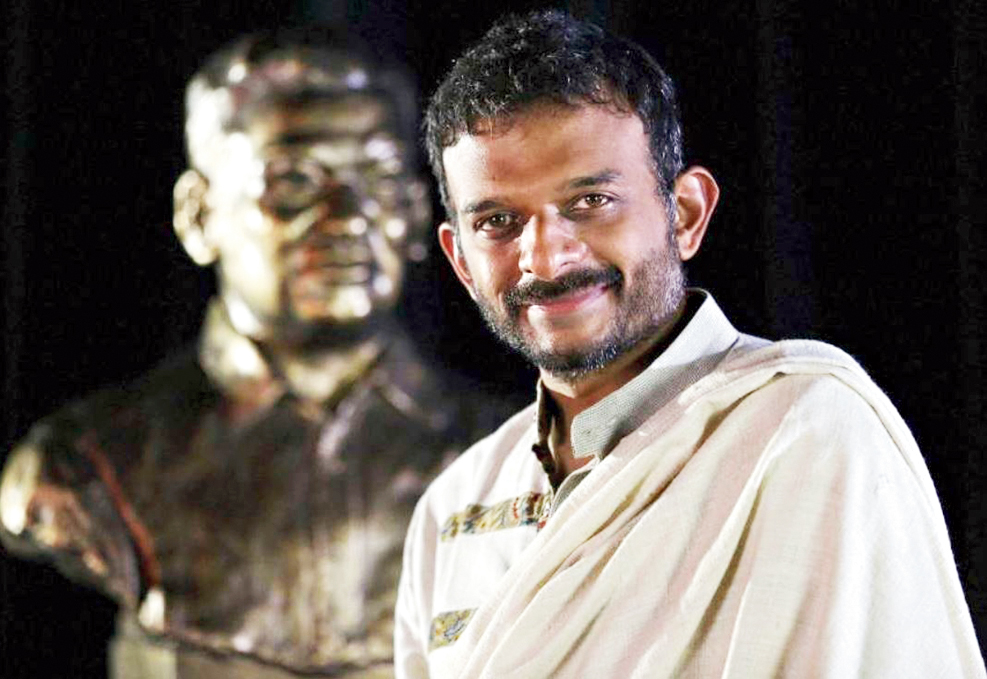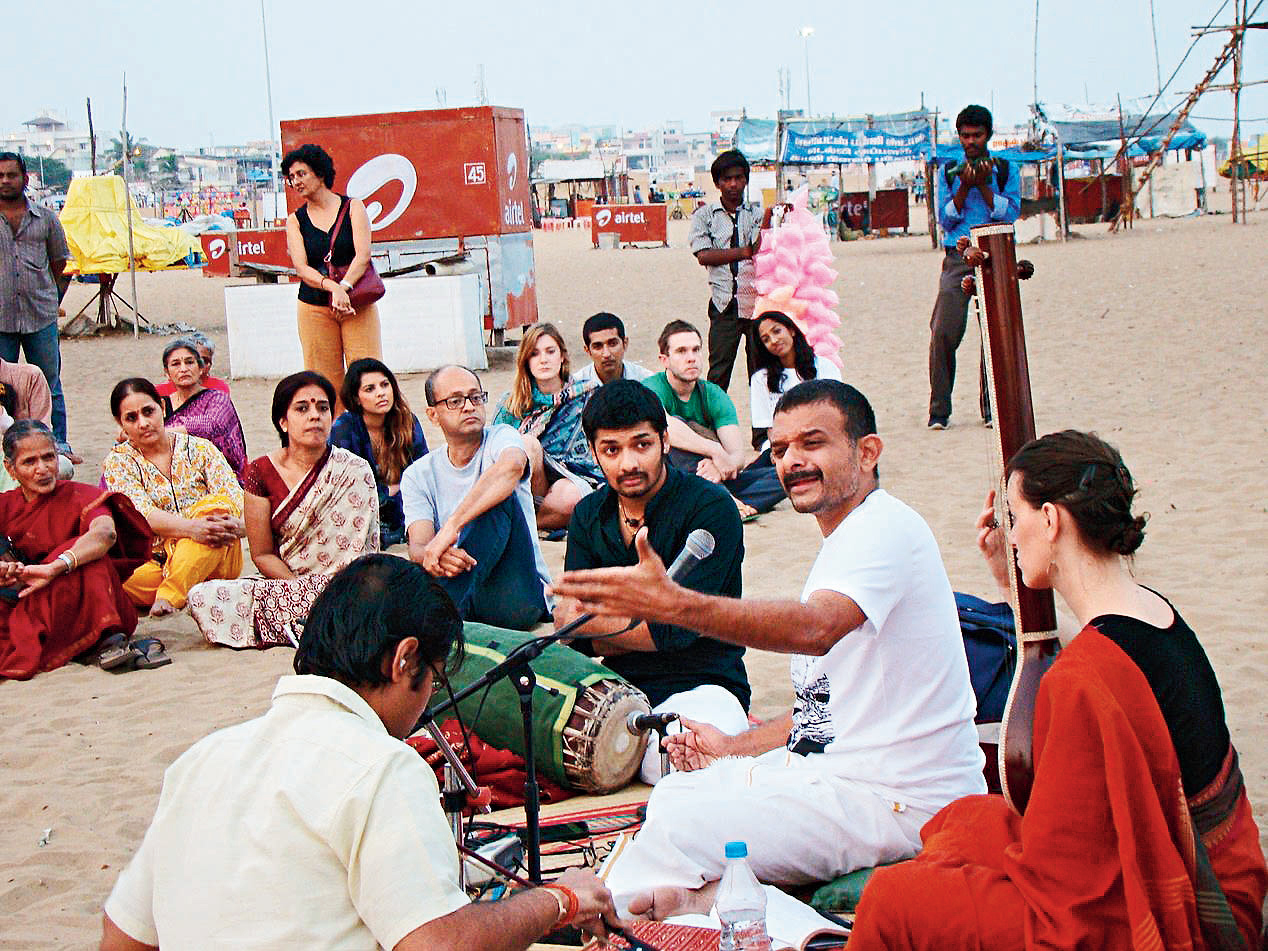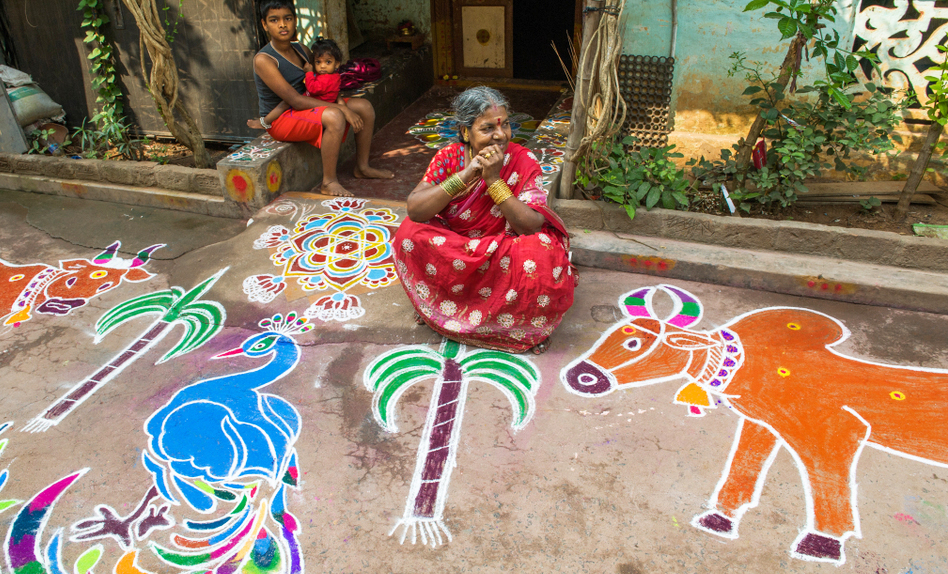Q: Vidya Vanam, a school for underprivileged children, was set up by your mother. What is your earliest personal memory of such a profound gesture of accommodation and inclusion?
My mother has been living in a village called Anaikatti for about 15 years now and the school itself is 12 years old. It is a magical space where learning is not unidirectional in any sense of the term. It flows to and from children, from within the classroom, and from everything that is around. The culture of the people, the hills, mountains, birds and animals flows into the classroom. Everyone learns and shares. This is a serious attempt to break knowledge hierarchies and make sure that every child, not just the privileged ones, gets a chance to learn in and from an environment that nurtures free thought. I am unable to remember any specific incident but I want to say something about inclusion itself. Inclusion is not a favour to anyone or an offer of any kind. Inclusion is a state of non-exclusivity. It is a democratic right.
Q: Is it not ironic that classical musical traditions are increasingly being looked upon as niche, exclusive artistic forms because of their demands of training, talent and purity?
I want to first say that the so-called classical traditions have always been exclusive. They have been part of upper class and caste society, be it in the inner chambers of the court or the temple. Purity, sanctity and the false notion that these arts need a more serious engagement than those arts that reside outside this privy circle have been perpetrated and established as truth. Therefore classical musicians, Hindustani and Carnatic, believe in this, flaunt it, use it as a weapon to keep people outside, and keep a tight grip on these art forms. Therefore, it should not surprise us that that is how the art world operates. The terrible lack of any social consciousness in the classical community is emblematic of the section of society that dominates it. It is also true that we expect anyone who wants to enter our fortress of art to subscribe to these ideas. All this is done through the way the music is taught, the stories that are told, the presentation of the art forms and the historicity that we have created. The classical world is filled with socio-politically plastic people. All of us fit the bill to a T.
Q: Exclusion is very much in vogue in the country. Do you think that art in general still retains the power to heal such divisions? If so, are some forms more effective than others in this role?
My instinctive response is, of course, yes, but this is an incomplete statement. The art world is no perfect place and within it exists all the inequalities and marginalization that we witness all around society. Art is not elevated and artists are certainly not special. So if art is to heal, artists must begin engaging with the politics of sound, sight, movement and light. This must happen within each form and in inter-cultural relationships. An honest, spirited conversation must begin among the arts that occupy different locations in society. But we have to be very careful that there is no condescension or appropriation from those who occupy higher cultural positions. At the same time, there must be an atmosphere that allows arts belonging to the various minorities to challenge every accepted cultural order. Healing happens only when there is dialogue and contestation.
Q: You have been one of the few artists to have spoken up against the myriad kinds of discrimination. What is your view on the argument that the performer/artist ought not to be political?
Only artists belonging to the upper castes and classes of society can come up with such a ridiculous and fraudulent statement. Those artists who as individuals or communities have always been at the receiving end of society’s oppressive nature know that they are political beings and their art is a manifestation of that self. What the culturally elite artist or aficionado is actually saying when they ask me or anyone else for that matter to not be political is the following: let the present unequal cultural-social-political scenario remain as it is. Even if they do not realize it consciously, this is what they are saying. Therefore, words like purity are simply tools for political manipulation.



